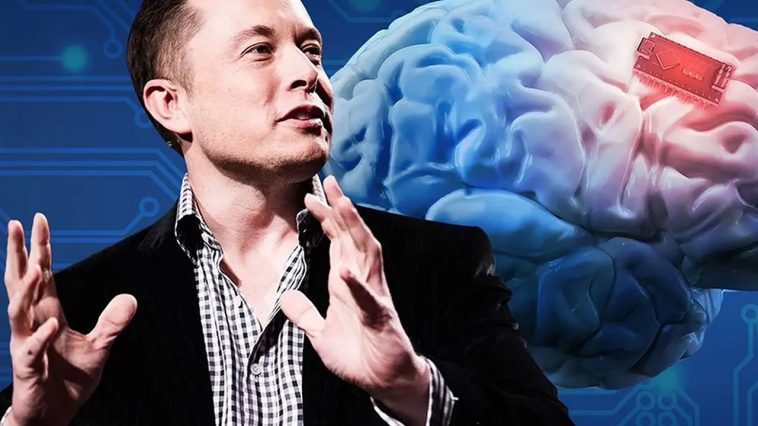LISTEN HERE:
Elon Musk’s company, Neuralink, has gained approval to test brain implants on humans. While the details of the trial are not yet known, it’s clear that many people on the internet have concerns about the emerging technology. Some of the backlash seems to be centered on Musk himself, rather than the technology itself. The comments on the tweet announcing the federal approval ranged from well-wishes to outright skepticism, with some people expressing a resounding ‘no thanks.’
For many people, the idea of having a chip implanted in their brain is simply too outlandish and terrifying to consider. And with talk of Skynet and nefarious AI looming in the background, it’s no wonder that some are hesitant to embrace Neuralink’s ambitions. Musk himself has hinted at the potential dangers of AI, and it seems that his perceived flaws and past failures are contributing to the skepticism surrounding the company’s latest announcement.
As reported, Neuralink’s implants are intended to assist those with paralysis and other physical disabilities. This is a noble goal, but not everyone is convinced that Musk and his team have the best of intentions. Some people on social media have expressed skepticism about Musk, questioning whether he can be trusted with such potentially powerful technology. Regardless, the potential benefits of Neuralink’s work are substantial.
It’s worth noting that Elon Musk has never shied away from ambitious projects and ideas. From colonizing Mars to revolutionizing transportation with self-driving cars, he’s a man who aims high. This has certainly resulted in some public failures, such as rockets that explode and hyped tunnel projects that stall out. However, his critics tend to forget that his successes have been equally impressive.
Of course, the prospect of brain implants is understandably daunting for many people. The thought of having something implanted in our brains can feel like a violation of our personal autonomy and identity. And for those who mistrust Musk and his vision, the idea of him having access to this kind of technology is even more alarming.
It’s worth taking the time to evaluate the risks and benefits of Neuralink’s technology. While Musk’s track record is not perfect, it’s important to remember that innovation often comes with setbacks and failures. If the benefits of the technology are realized, it could be life-changing for many people with physical disabilities.
It’s understandable to be cautious and ask hard questions. After all, the idea of brain implants doesn’t exactly inspire warm and fuzzy feelings. However, it’s worth noting that other researchers have already made significant strides in this area. As recently as 2020, Swiss scientists managed to restore functional connections in the spinal cords of paralyzed rats using similar technology.
So while the idea of Neuralink’s brain implants might be unsettling, it’s important to remain objective and not let fear cloud our judgment. The technology has the potential to help people with otherwise unmanageable physical limitations, and that’s a goal worth pursuing.
If Neuralink’s technology is successful, it could pave the way for further advancements in the field of human-machine interaction. This could lead to a future where people with physical disabilities are able to lead fuller, more independent lives. The possibilities are truly staggering.
It’s understandable that people are hesitant to embrace Neuralink’s technology, given the many risks associated with brain implants. However, it’s important to remember that innovation always comes with risk. The key is to take a measured approach and weigh the costs and benefits appropriately.
It’s no secret that Elon Musk has his detractors, but it’s worth remembering that his influence and vision have resulted in some truly groundbreaking advancements. From electric cars to reusable rockets, he’s a man who isn’t afraid to push the boundaries of what’s possible. If he and his team can develop a safe and effective brain implant technology, it could be a game-changer for people with physical disabilities.
At this point, it’s still too early to know what the future holds for Neuralink’s brain implants. However, it’s clear that the team is dedicated to finding innovative solutions to problems that have long been thought of as unsolvable. Whether the technology will actually work as intended remains to be seen, but the potential benefits are undeniable
It’s important to remember that innovation isn’t always easy. There will be setbacks and failures along the way, but that shouldn’t deter us from pursuing bold, transformative ideas. If Neuralink’s brain implants are successful, it could help countless people lead more independent and fulfilling lives.
Ultimately, the decision of whether to embrace Neuralink’s technology is a personal one. It’s understandable to be skeptical and cautious, but it’s also important to remain open-minded and consider the potential benefits. Only time will tell whether Neuralink’s ambitious plans will come to fruition, but one thing is clear: the possibilities are endless
In conclusion, Neuralink’s announcement that it has received federal approval for human clinical trials has sparked a range of reactions from excitement to skepticism. While the idea of brain implants might be unsettling for some, it’s important to remain objective and consider the potential benefits of the technology. Whether Neuralink’s plans will be successful in the long-term remains to be seen, but the possibilities are truly staggering.


